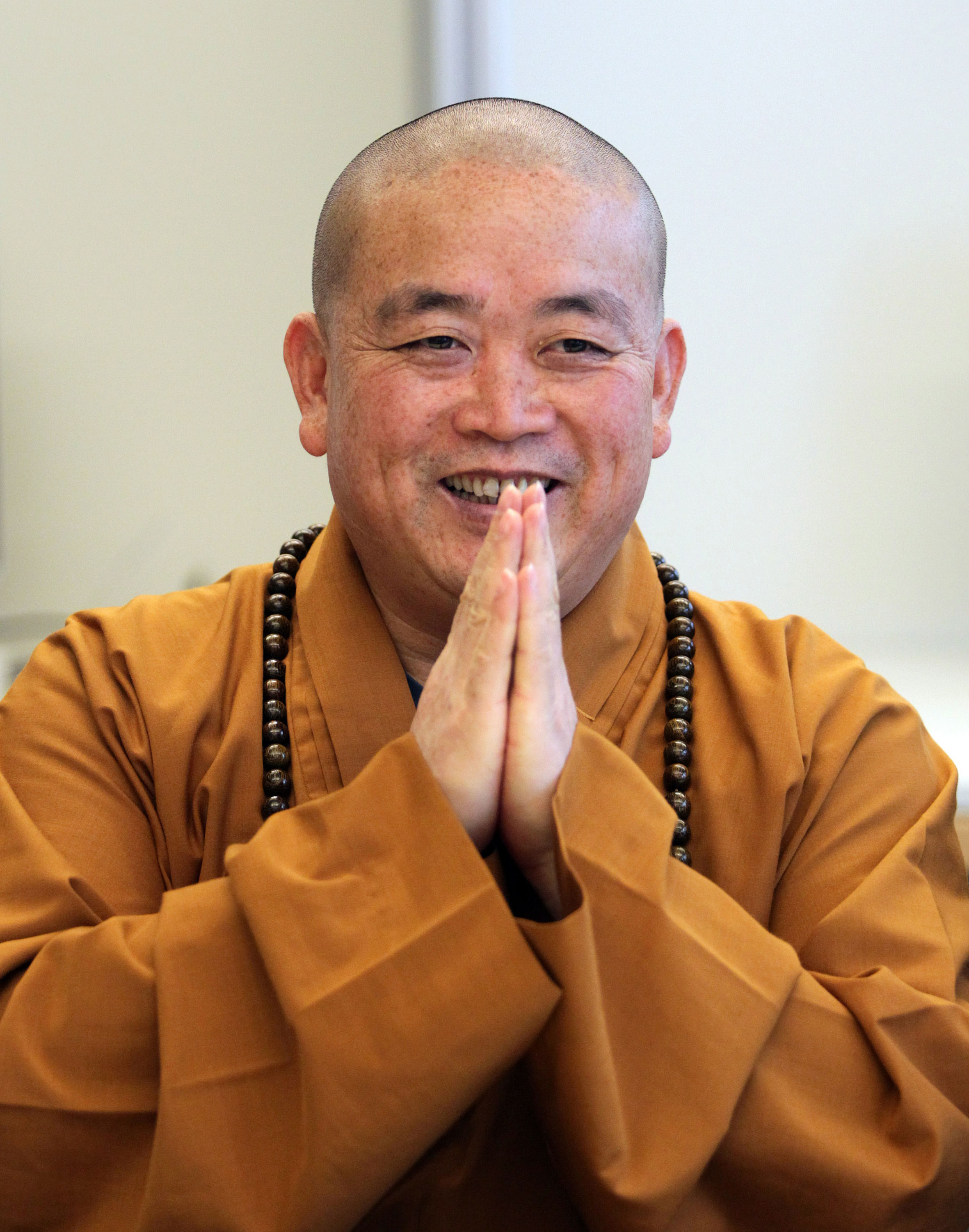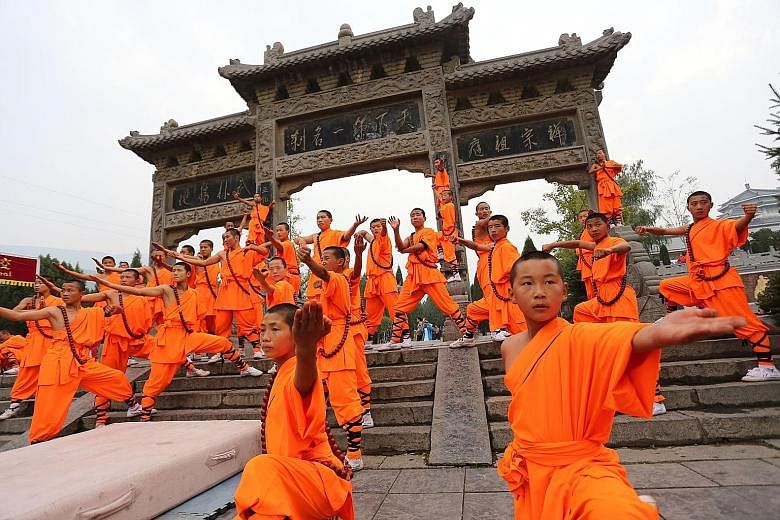DENGFENG (China) • Incense drifting through ancient cedars. Saffron-robed monks making quick work of imagined enemies. The chime of a giant bronze bell calling the faithful to prayer.
This is the scene at the fabled Shaolin Temple, a cradle of gongfu and Zen Buddhism in China's central Henan province, where legend has it that monks have trained in martial arts for centuries.
But in recent days, another sound has been wafting across its hallowed grounds: the snickering of tourists trading the latest news about the abbot of Shaolin and his reportedly less than virtuous ways.
Over the past week, much of the country has been transfixed by salacious allegations that the famed abbot, Shi Yongxin, known as China's CEO monk for transforming Shaolin into a global commercial empire, is a swindler and serial philanderer who secretly fathered children with two of his lovers, vows of celibacy notwithstanding.

The accusations - new tidbits have appeared almost daily in the Chinese news media - are mostly based on documents released by a self-described former monk at the temple who says the abbot owns a small fleet of fancy cars, has embezzled millions of dollars from a temple-run corporation and funnelled some of the cash to a mistress now living in Australia.
Beyond the obvious legal repercussions, the abbot's apparent lust for women, money and bling runs counter to the virtues of chastity and austere living he has long sought to personify as one of the most prominent figures in Chinese Buddhism.
-
HISTORY OF SHAOLIN TEMPLE
-
Founding (AD495): An Indian monk founded the temple in the Song mountain range in Henan. The monk, known as Batuo, was its first abbot and, some say, introduced martial arts there.Turbulent 1,400 years: The temple was destroyed and restored several times because of conflicts over the monks' political allegiances. In 1928, the warlord Shi Yousan set fire to the monastery.
-
Cultural Revolution (1966-1976): Red Guards destroyed the rebuilt temple and attacked its monks.
-
International fame (1982): Hong Kong movie Shaolin Temple, starring Jet Li, brought the monastery added fame; it spawned a number of sequels.
-
Going into business (1997): The temple set up the first company run by a Buddhist monastery in China - to trademark its name.
-
Abbot Shi Yongxin (1999-today): In his 16 years as abbot, he has revived ancient Shaolin medicine, set up martial arts schools overseas and pursued other investments, including a failed stock exchange listing and a plan to build a US$300 million (S$415 million) luxury Shaolin gongfu resort and golf course in south-eastern Australia.
NEW YORK TIMES
The informer, a mysterious figure using a name that translates as "seeker of justice", has told reporters he is fed up with the abbot's hypocrisy and wants to see the "grounds of Shaolin purified again".
He declined interview requests and has yet to appear in public, saying he is afraid for his safety following threats from what he called "Shi Yongxin's henchmen".
Among the evidence he has made public to support his accusations are police depositions and photos of a woman said to be one of the abbot's lovers, a Shaolin nun who appears dressed in brown monastic robes while holding the baby she says was fathered by the abbot. Another supposed mistress claims to have physical evidence of his lechery: semen, collected in a condom, that she sent to a doctor for safekeeping.
At the temple last week, the modest grey-brick pavilion where the abbot lives and works was padlocked. In a statement posted online, monastery officials called the allegations "vicious, groundless libel".
Local police officials say they have opened an investigation. The powerful State Administration for Religious Affairs had warned that the scandal threatened to tarnish Chinese Buddhism. Amid the ruling Communist Party's anti-graft drive that has toppled scores of powerful figures, the fact that the story has remained alive in the tightly controlled state media for so many days does not bode well for the abbot.
On Monday, news outlets gleefully reported that he failed to show up in Thailand at the weekend for a previously scheduled martial arts performance as he was "tied up" with the investigation.
Still, few thought Shaolin would suffer lasting damage, given the temple's popularity both in China and abroad. "The more gossip about Shaolin, the more tourists will come," said snack vendor Zhang Jianzhen. "That can only be good for business.
NEW YORK TIMES

